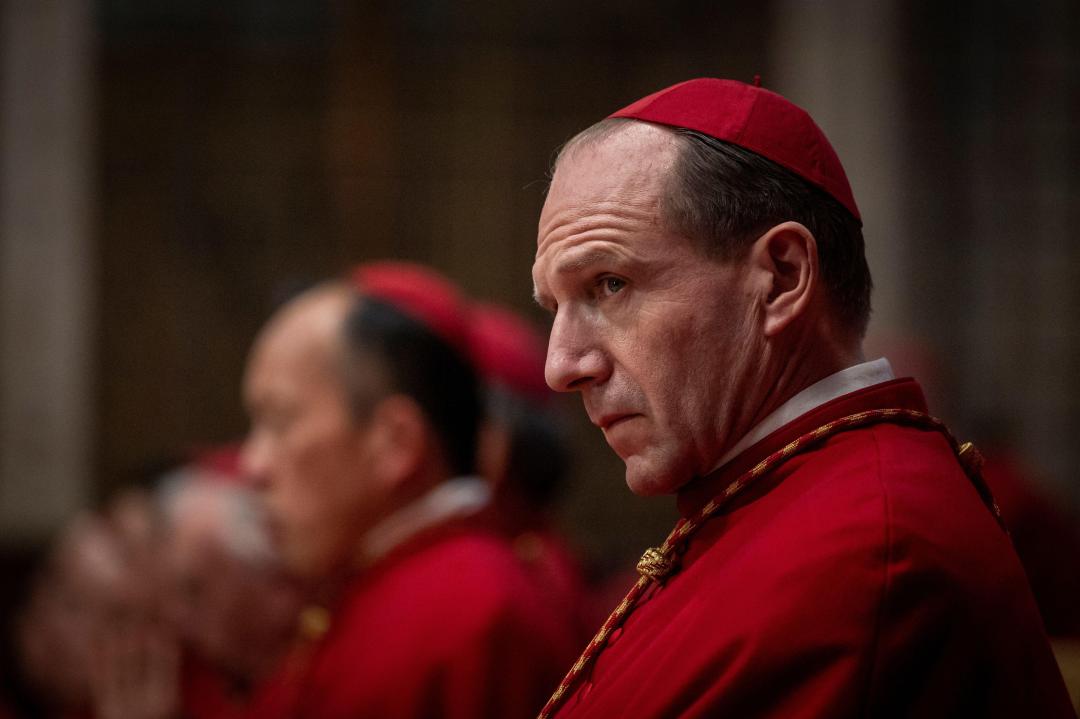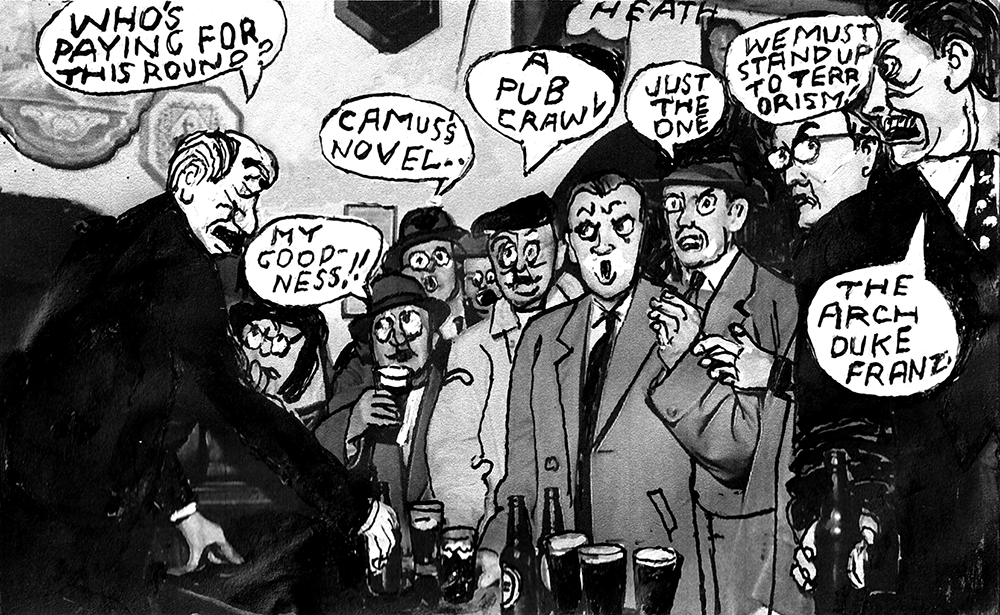Next week, after Francis’s funeral, the College of Cardinals will assemble in Rome to choose the man who will lead their Church through these increasingly troubled times. That gathering has become more familiar to a wider, non-Catholic public thanks to the recent films Conclave and The Two Popes – though these are far from the first time that novels and the silver screen have made a drama out of a conclave.
This assembly is unlikely to echo the fiction of Robert Harris’s thriller and its screen version starring Ralph Fiennes. The next pope is almost certain to be a liberal in the mould of Francis himself, whereas in Conclave (spoiler alert if you haven’t read the novel or seen the film) an intersex dark horse cardinal absurdly emerges from nowhere through the deadlocked conclave to take the papal mitre.
Conclave followed hard on the red-slippered heels of The Two Popes in 2019, which told the ‘trueish’ story of Francis’s emergence as the first non-European pope in centuries, succeeding the conservative Pope Benedict after his sudden resignation. Starring Anthony Hopkins as Benedict and Jonathan Pryce as Francis, the film drew plaudits for humanising prelates who often seem remote automatons.
But the daddy of fictional depictions of choosing a pope is the 1904 fantasy novel Hadrian the Seventh by the eccentric wannabe-priest Frederick Rolfe, aka Baron Corvo. In this extraordinary book, Rolfe’s alter ego, George Rose, is ordained and mysteriously wafted to the papacy at another deadlocked conclave, becoming the first English pope since Nicholas Breakspear became Adrian IV in 1154. Rose then reigns as a reforming pontiff until his assassination by a Scotsman.
Hadrian the Seventh is a wish-fulfilment dream of Rolfe’s, a Catholic convert who never succeeded in becoming a priest, let alone a pontiff, despite prolonged theological training in Rome. Attributing his failure to a malign conspiracy within the Church, he abandoned his studies and was adopted by an Italian aristocrat who gave him the dubious Corvo title. He became the first in a long line of wealthy patrons who tried to help Rolfe, only to be rewarded with vituperative abuse for their pains.
An enthusiastic pederast, Rolfe ended his days in Venice in 1913, where he had gone in pursuit of muscular gondoliers. Continually in dire poverty and sometimes actually starving and forced to sleep in gondolas, the begging letters Rolfe wrote became a literary genre of their own, described by W.H. Auden as ‘little masterpieces of venom’. Though he wrote several other novels and short stories, Rolfe is best remembered for Hadrian the Seventh.
He would have sunk into total obscurity had it not been for the writer A.J.A. Symons, whose 1934 biography of the reprobate, The Quest for Corvo, is also a masterpiece of its genre. It inspired the playwright Peter Luke to dramatise Hadrian in 1968, which became a surprise hit both in the West End and on Broadway, starring Alec McCowen as the eponymous papal hero.
What is it about a gathering of 120 elderly men in solemn conclave that has so frequently attracted the attention of novelists and filmmakers?
The same year saw the release of yet another cinematic depiction of a deadlocked conclave: The Shoes of the Fisherman, based on a thriller by Morris West. With a starry cast including Laurence Olivier, John Gielgud, Anthony Quinn, Oskar Werner, Vittorio De Sica and Leo McKern, the film has a Cold War theme with spookily topical echoes today, since it concerns a Ukrainian archbishop who becomes pope after 20 years in a Russian gulag. In a conclusion as unlikely as Harris’s Conclave, the story ends with the new pope pledging to sell the Church’s property to buy grain for a starving China – and thus free the world from the threat of nuclear war.
Topical themes also abound in The New Pope, a nine-part Sky Atlantic series screened in 2020. Starring Jude Law and John Malkovich, the series revisits familiar tropes: a good liberal pope and a nasty conservative one; a conniving cardinal manipulating a conclave; another English pope with worrying personal issues – and a relatively happy ending. Needless to say, its resemblance to reality is tangential at best.
If The New Pope has unintentionally comic aspects, then the 1991 film The Pope Must Die! with Robbie Coltrane in the lead role of another Brit accidentally made pope, is the real deal: a comic-caper farce in which the new pontiff has to outwit the Mafia and avoid assassination. To the non-faithful, the Catholic Church will always lend itself to comedy, but to true believers the death of a pope is no laughing matter.
So what is it about a gathering of 120 elderly men in solemn conclave that has so frequently attracted the attention of novelists and filmmakers? After all, the usual attributes of gripping dramas are notable by their absence: there are few women, no sex, and no overt violence. For me, it is the sheer drama and weirdness of this tussle for the leadership of an institution that, for good or ill, remains one of the world’s most influential and powerful bodies.








Comments